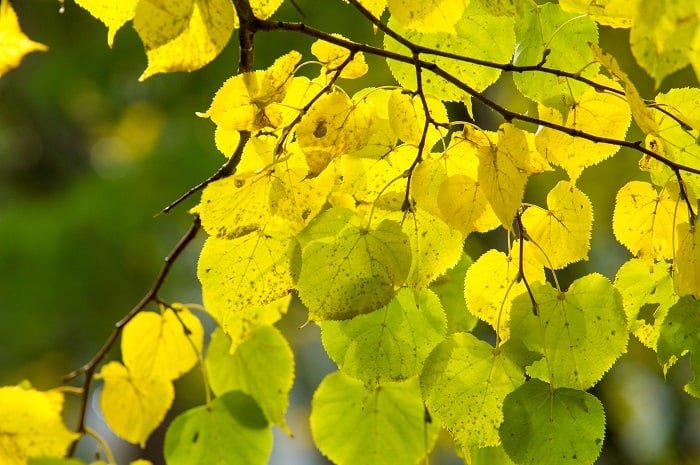There are a lot of concerns with using mushroom compost in the garden. This is because it contains salt. This is the reason why most gardeners ask the question will mushroom compost burn my plants?
Like I said earlier, mushroom compost contains a great deal of salt which could harm your plant when used in excess. So then how can you safely use mushroom compost? In this article, we will be discussing mushroom compost, the pros and cons, and the best method in adding it to your garden plant.
Without wasting much time, let us dive right in.
What is Mushroom Compost?
Often time when you purchase mushroom compost from the store, it reads mushroom
There are different types of mushroom compost and they are
Mushroom Substrate
Mushroom compost is often referred to as the mushroom substrate. This is the medium in which mushrooms are growing. Industrially, a mushroom substrate is made from a mix of manure, gypsum, and wheat straw. In most cases, chicken or horse manure is commonly used since it is readily available.
To produce mushroom substrate in large quantities, the manufacturer begins by soaking large bales of straw in water. Once the straw is soaked and spongy like, it is chopped into fine pieces by passing it through a chipper or using other methods.
The gypsum and manure are blended. This is to ensure they mix properly before the straw is then added into the mix. Once ready, the mixture of the gypsum, manure, and straw is then left on a hot compost pile to begin the composting process.
To ensure that the materials mix properly and compost together, the pile is watered and turned regularly. When done properly, this process can take as fast as 2 weeks.
Find more information about Best Oyster Mushroom Substrate
Spent Mushroom
This type of mushroom compost is low in nutrients compared to the substrate. This is because the spent mushroom is usually used as a recycled compost from the remains of mushroom farming.
Although the Nitrogen content in this mushroom compost is low, it can be used as a conditioner to improve the
Will Mushroom Compost Burn Plants?
In most cases, when you add mushroom compost to your
You need to note the nutrients that are deficient in your

You may need to perform a
Adding too much mushroom compost with a high salt content can cause your plant to burn. This is why you need to consider the
Salt Content in Mushroom Compost
Mushroom compost contains a lot of salt. This is mostly due to the presence of high levels of sodium in the gypsum and manure. In a recent study, samples of mushroom compost were collected for analysis. And it was discovered that they contained low levels of sodium.
When the
The salt content of mushroom compost depends on how the compost was manufactured. Most manufacturers mix their mushroom compost with nutrient-rich
How to Use Mushroom Compost?
When applied to your
You want to ensure that you take precautionary measures before adding mushroom compost to your
Some of the things you need to do to prevent your
- Ensure that you perform a
soil test to determine the nutrients that are deficient in your gardensoil . - Use mushroom compost with relatively low sodium content. This way, you are certain that your plants won’t be affected by the excess salt that is present in most mushroom compost.
- Use mushroom compost sparingly in your garden. You can add them at intervals instead of using too much on your garden at once. This prevents excess nutrient and salt deposits in your garden.
- Use mushroom compost as a mulch and work it gradually into your
soil to amend it. You should use not more than 3 inches of mushroom compost to prevent the growth of weed. - You also need to be careful to avoid chemicals in your organic mushroom compost. This you can easily do by making your mushroom compost at home or getting from a trusted source.
- It is best to avoid using mushroom compost on seedlings, young plants, and plants that are sensitive to salt. This includes azaleas and blueberries.
FAQ’s
How does mushroom compost help with plants?
Mushroom compost is one of the most useful composts available. But, just like any compost, it can be misused. Here are some things to keep in mind when using mushroom compost. Mushroom compost is a fantastic way to add nitrogen to your garden. It is also a great way to add mushrooms to your garden! I just recently read an article that mentioned using mushroom compost as a weed suppressant in your lawn.
However, when you’re using mushroom compost, it is important to understand the difference between a mushroom compost and mushroom spawn. Mushroom spawn is the mycelium, or vegetative body of the mushroom.
Does mushroom compost burn plants?
No, mushroom compost will NOT burn your plants. It will only burn you!So make sure to wash your hands after handling it.
However, if you are making compost with wood and straw, there is a risk that the heat from the decomposition process may burn your plants. This can be avoided by using only fresh, clean materials, including leaves, grass clippings and weeds. If you are making compost with wood or straw, always use them in a way that minimizes the risk of burning plants.
What’s the salt content of mushroom compost?
The salt content of mushroom compost varies. If you want to know what kind of salt you are adding, you can always look at the label or ask your supplier. I would recommend that you add no more than a tablespoon of salt per cup of compost, and preferably not any at all.
How do I choose a good mushroom compost?
Mushroom compost is a mixture of chopped mushroom stalks and leaves that is used as a soil amendment. It is usually sold in bags or containers that contain between four and ten pounds. There are also liquid mushroom compost products that can be mixed with water or applied directly to the soil. When you buy mushroom compost, make sure it contains the following three ingredients: mushroom stalks, chopped leaves and sawdust.
How do you test the toxicity of mushroom compost?
There are a number of ways to test for the toxicity of a mushroom compost:
Peat – The easiest way to test is to put the compost in water and see if it dissolves. Peat should dissolve quickly, while some other types of compost might take longer. If it doesn’t dissolve quickly, then it may be poisonous. If you don’t know whether your compost is peat or not, try putting it in water and seeing if it dissolves. If it does, then it is probably peat. The easiest way to test is to put the compost in water and see if it dissolves. Peat should dissolve quickly, while some other types of compost might take longer. If it doesn’t dissolve quickly, then it may be poisonous. If you don’t know whether your compost is peat or not, try putting it in water and seeing if it dissolves. If it does, then it is probably peat.
A pH test – Some fungi have been found to make your compost more acidic than normal. This can be a problem for plants if they have a hard time acclimating to an acidic soil. Some fungi have been found to make your compost more acidic than normal. This can be a problem for plants if they have a hard time acclimating to an acidic soil.
A soil test – Soil tests are good for checking the general health of your soil, but they are not very helpful when trying to determine whether your compost is toxic or not. Soil tests are good for checking the general health of your soil, but they are not very helpful when trying to determine whether your compost is toxic or not.
Petri dish – The easiest way is to take a sample and put it in a petri dish with a bit of water and some bacteria. Bacteria will eat away at the compost and tell you how poisonous it is.
Testing your compost for toxicity is not necessary if you use a mushroom compost that has been tested and found to be non-toxic.
Take Away
Mushroom compost is a good way to improve your plant yield. When used properly, it can provide your
However, you want to be careful to source your compost from organic farms and use it sparingly if it has high salt content. This way, you can be certain that the mushroom compost will not burn your plants.
How do you use mushroom compost in your garden? We will like to hear from you.





